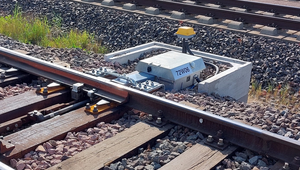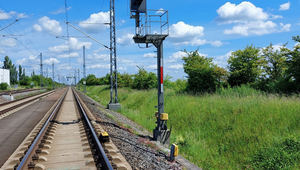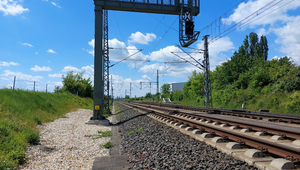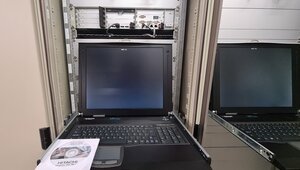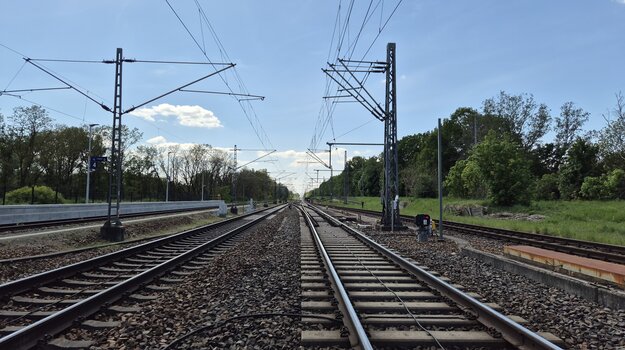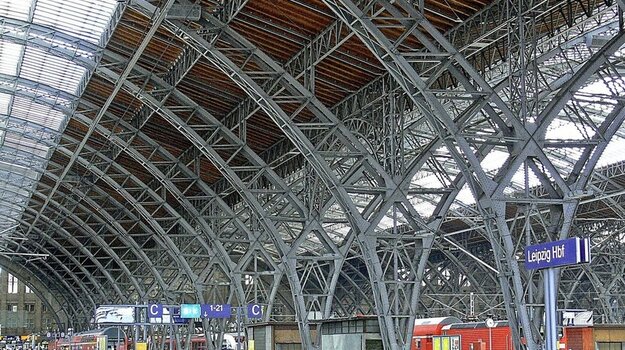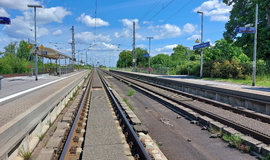
Leipzig/Halle – Berlin project (VDE 8.3) reaches next milestone on the way to ETCS equipment
The 185-kilometre Leipzig/Halle – Berlin line will be equipped with the European Train Control System (ETCS). Another important milestone has now been reached: from 22 to 26 May 2025, the final work on the control and safety technology was carried out on the approximately 30-kilometre section of track between Halle (Saale) and Bitterfeld. As part of the construction work, which started at the beginning of the year, the interlocking system was adapted to the requirements of ETCS. With success: the new technology was put into operation on schedule on the morning of 26 May. This lays the foundation for the upcoming ETCS equipment of the Halle (Saale) – Bitterfeld section and its planned commissioning at the end of 2026. At the same time, work has begun to increase the maximum speed permitted on the section from the current 160 km/h to 200 km/h in future. The project is thus making a contribution to the implementation of the Germany-wide integrated regular-interval timetable.
Two years of intensive project work lie behind the commissioning: the project team has been working on the control areas around Roitzsch, Landsberg and Halle since 2023. A wide range of work was carried out, such as
- the replacement of axle counting systems to fulfil legal EU requirements and to increase system availability,
- the relocation of existing and the erection of new signals and signal brackets,
- cable earthworks and cable laying,
- the installation of electric point machines and
- the replacement of the power supply for the control and signalling technology.
The construction work also involved changing the software in the Leipzig control centre and three associated interlocking sub-centres in Delitzsch, Bitterfeld and Dessau. The new external systems (axle counting systems, signals and point machines) are wired into the switch cabinets of the interlockings, after which the customised software is installed. This is necessary to enable the new systems to be operated by signallers in the Leipzig control centre. A total closure of the Halle (Saale) – Bitterfeld section of the line for almost five days was necessary for the commissioning. Once all the systems had been connected to the interlockings, a complete functional test and final acceptance of the technology took place. On 26 May at 04:00 in the morning, the work was successfully completed on schedule and train operations were resumed as planned.
The aim is for ETCS to replace the German train control system "Linienförmige Zugbeeinflussung" previously used on the Leipzig/Halle – Berlin line. Planning for this has already begun. The next step is the implementation on the Halle (Saale) – Bitterfeld section in 2026, for which approvals for the technology to be used are still required. Here, the project should benefit from preliminary work from other projects in Germany. The other sections of track will then be successively prepared for ETCS.
More about the Leipzig/Halle – Berlin project (VDE 8.3)
The Leipzig/Halle – Berlin line is part of the German Unity Transport Project No. 8 (VDE 8: Verkehrsprojekt Deutsche Einheit Nr. 8) and forms the VDE 8.3 project section. VDE 8 provides for the new construction and expansion of the Nuremberg – Erfurt – Leipzig/Halle – Berlin rail link.
At the same time, the Leipzig/Halle – Berlin line forms an essential section of the Berlin – Munich high-speed line. This enables travellers to travel comfortably between the two destinations in under 4 hours.
It is also part of the trans-European transport network on the north-south axis from Scandinavia to the Mediterranean in Italy. This means that Leipzig/Halle – Berlin (VDE 8.3) is of great importance for rail transport in Germany and Europe.
By equipping the entire Leipzig/Halle – Berlin route with ETCS, the project will enable seamless, cross-border rail transport in Europe in the future. This is because ETCS is a standardised train control system that is mandatory for all EU member states and will gradually replace the national train control systems. ETCS will enable trains to travel smoothly from one country to another without having to make a transition. This will enable greater reliability and interoperability in cross-border rail transport in the future.
